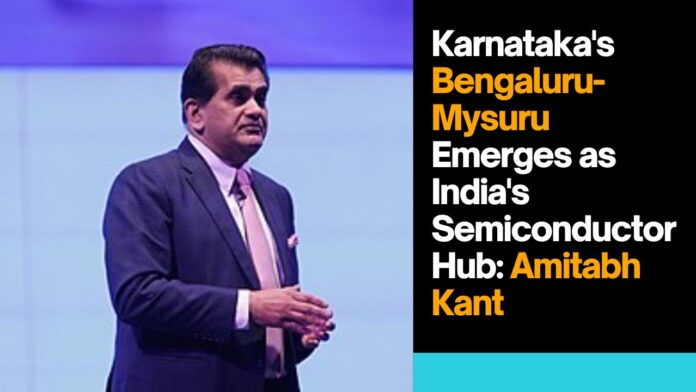Former CEO of NITI Aayog and India’s G20 Sherpa, Amitabh Kant, has identified Karnataka’s Bengaluru-Mysuru belt as the prime location for semiconductor design and manufacturing in India. Speaking at the India Global Innovation Connect event in Bengaluru on Thursday (June 6), Kant emphasized the region’s conducive ecosystem for semiconductor fabrication plants.
Kant highlighted the region’s abundant supply of electricity and minerals as key factors making it an ideal choice for semiconductor manufacturing. He noted that the Bengaluru-Mysuru belt possesses all the necessary resources, positioning it as a potential design center for the world.
With approximately 30-35% of India’s current semiconductor design already taking place in Bengaluru and Hyderabad, Kant expressed confidence in the region’s capability to cater to global semiconductor design requirements.
Responding to queries regarding the proposed site for India’s first quantum computing tech park, Kant affirmed that there’s “no better place” than Karnataka to establish a hub for this emerging technology.
Looking ahead, Kant outlined the government’s focus for the next five years, emphasizing the importance of skilling youth in emerging technology areas and creating new job opportunities. He stressed the need for upskilling startups to train young engineers in fields like AI and data science to bridge the skills gap quickly.
Regarding the INR 1 Lakh Cr R&D fund announced in Budget 2024, Kant mentioned that the corpus would start becoming operational in the next three to four months.
Kant’s remarks come amid growing global interest in GenAI and the crucial role of semiconductors in driving this emerging technology. India, aiming to establish its presence in this domain, has announced initiatives such as the INR 76,000 Cr production-linked-incentive (PLI) scheme for semiconductor manufacturing and investments in the Quantum Computing Mission.
Noteworthy developments in this space include Tata Group’s plans for a semiconductor ATMP unit in Assam, Vedanta Group’s chip foundry in Gujarat’s Dholera, and Zoho’s semiconductor manufacturing unit in Tamil Nadu. Micron Technology has also announced a semiconductor testing and packaging plant in Gujarat’s Sanand.
Driven by these initiatives, India’s semiconductor market is poised to exceed the $150 Bn mark by 2030, marking significant progress in the country’s journey towards technological innovation and economic growth.




